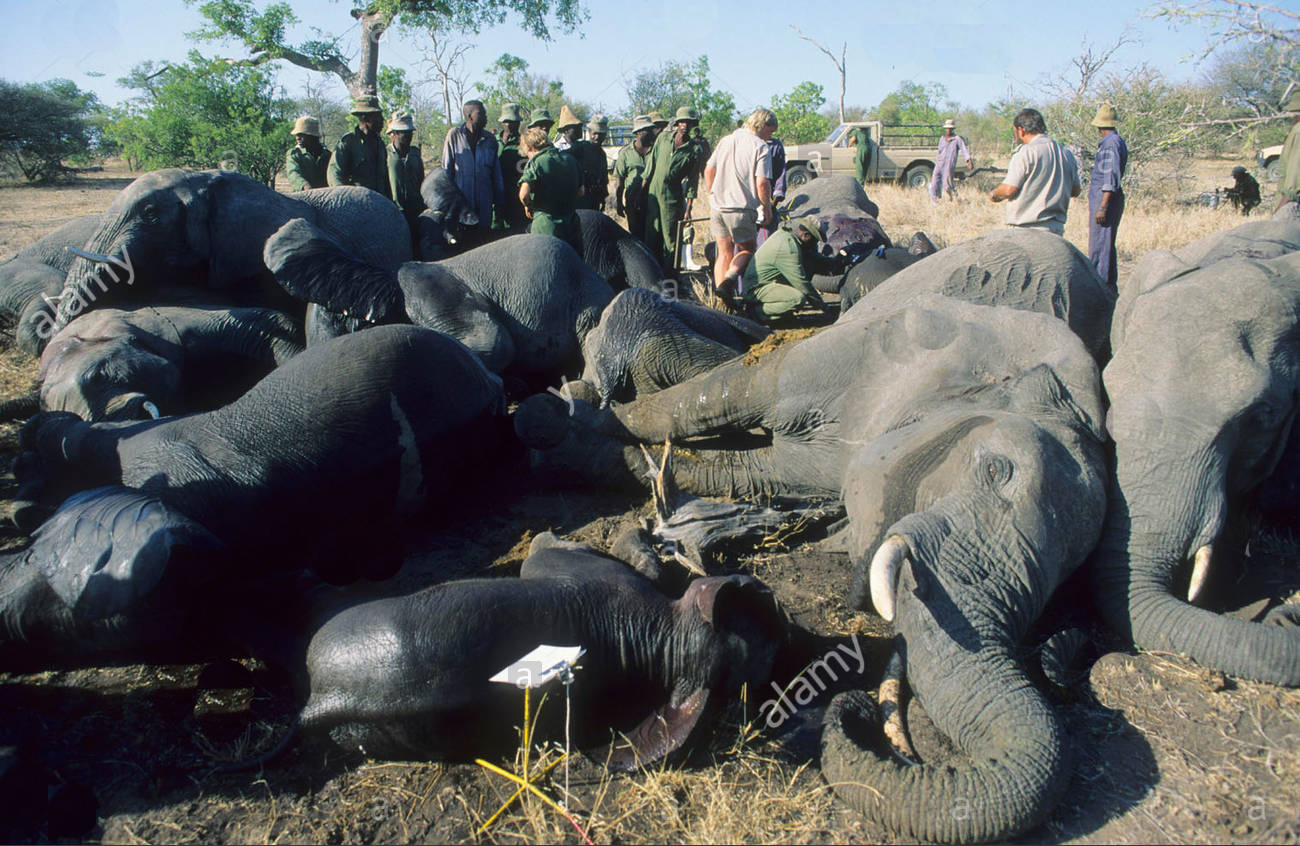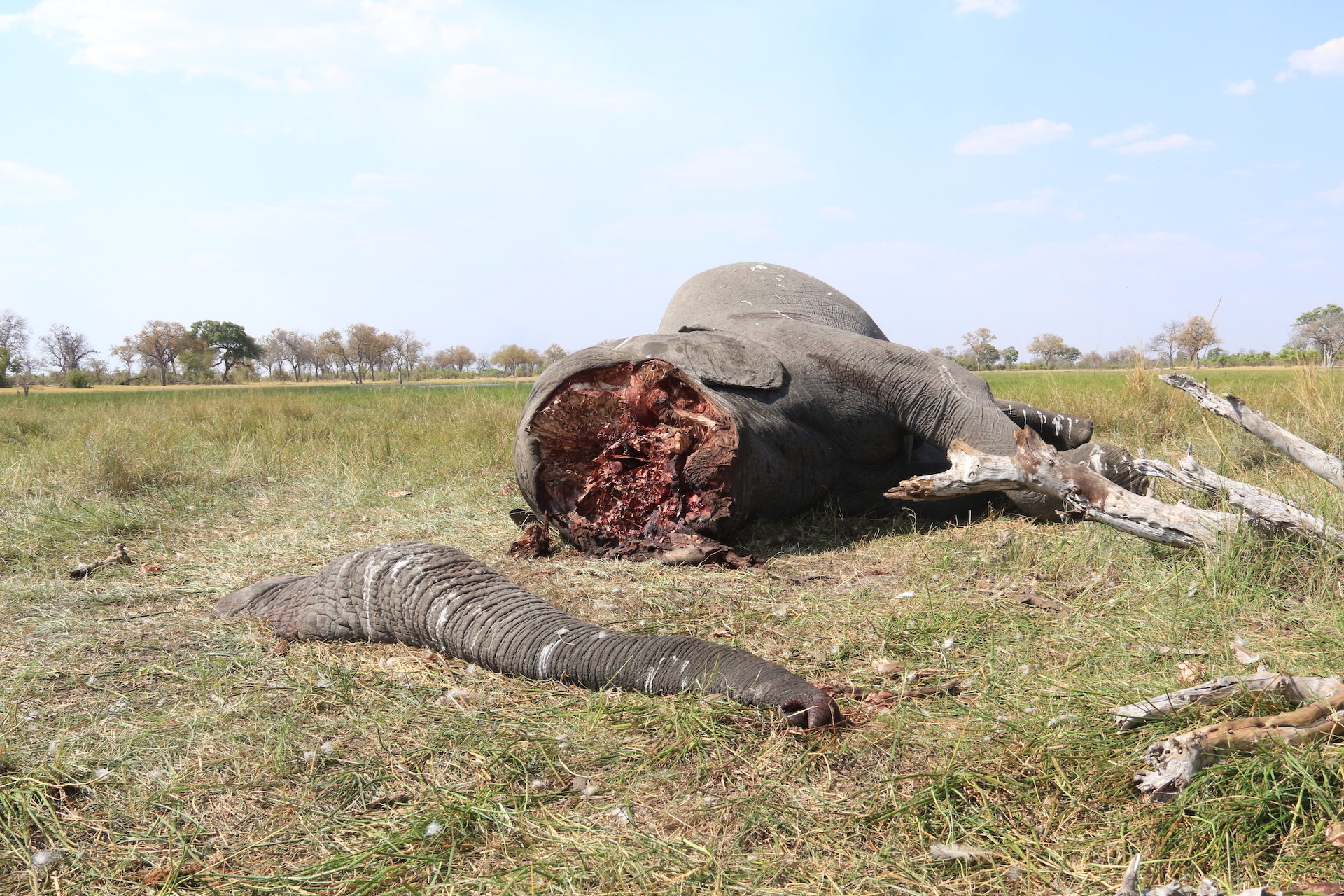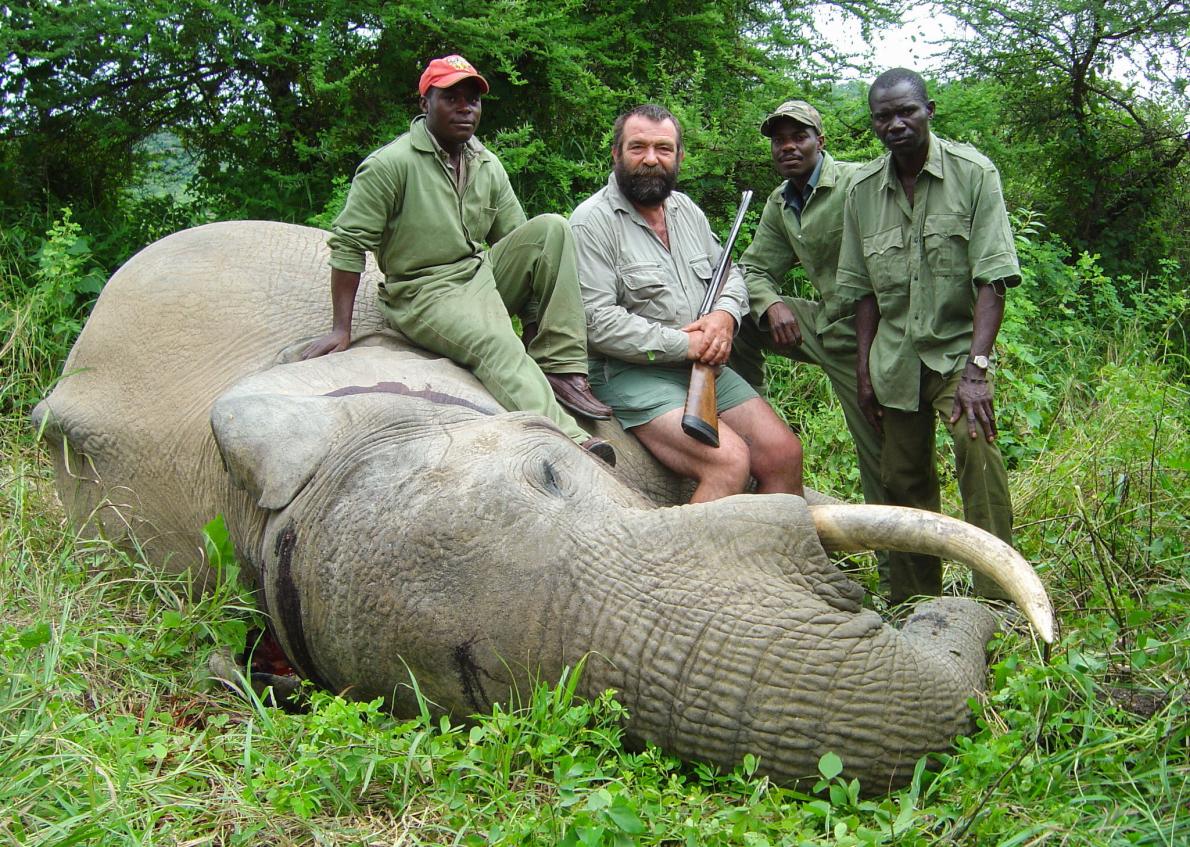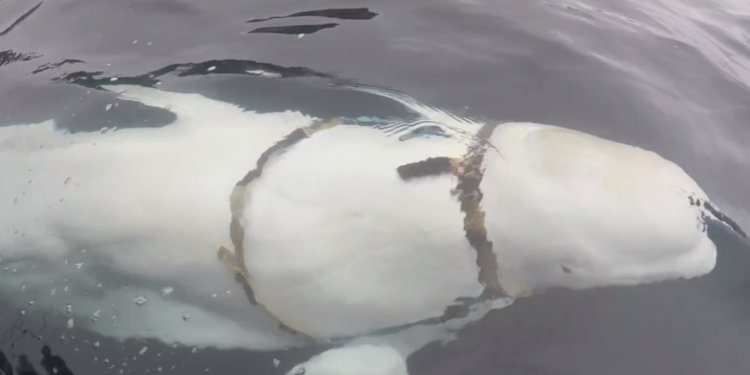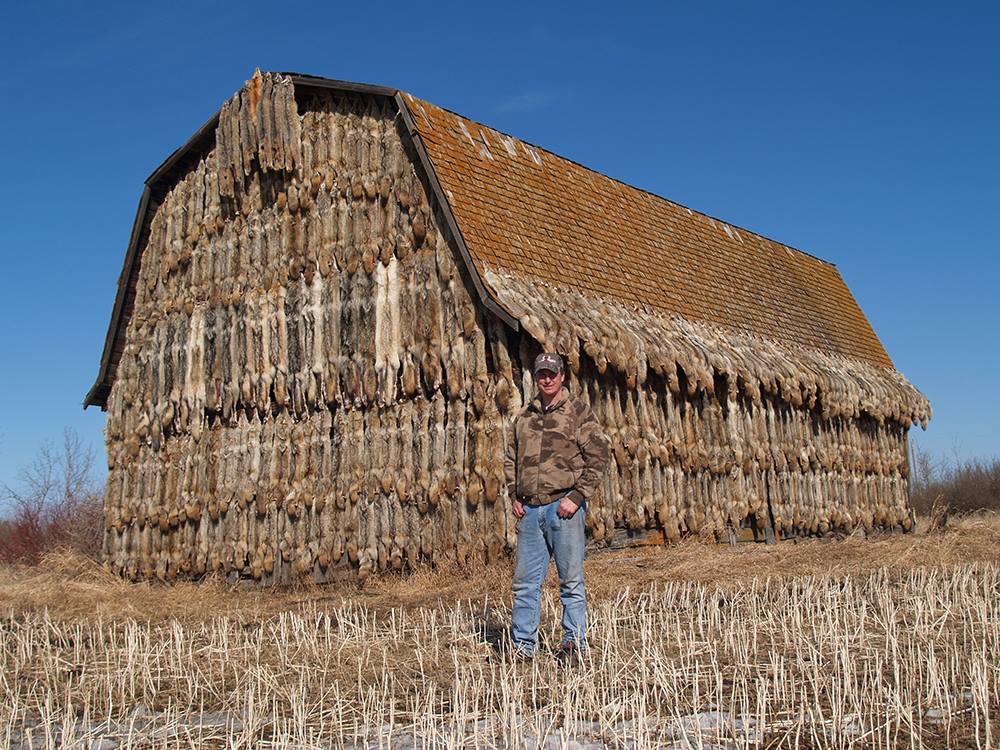Botswana is moving towards culling elephants by lifting its wildlife hunting ban after a group of the country’s ministers endorsed the idea, but the proposal has drawn heavy criticism. Botswana’ is planning to cull elephants and sell them as pet food wins ministerial approval.
The southern African country’s President Mokgweetsi Masisi had previously tasked a government subcommittee with reviewing the hunting ban - which had been put in place by his predecessor Ian Khama in 2014.
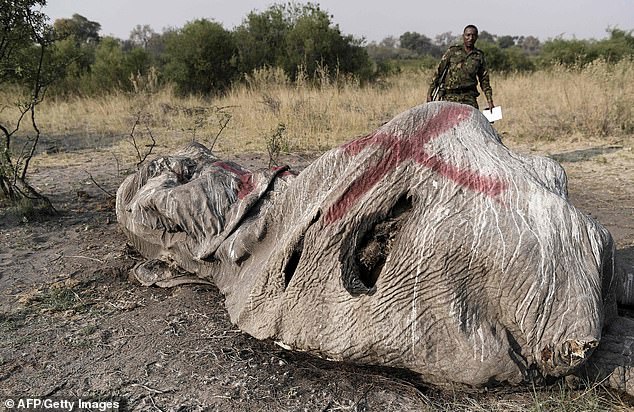
The committee decided to recommend lifting the ban last Thursday, and the country’s minister of local government and rural development Frans Solomon van der Westhuizen advocated ‘regular but limited elephant culling’, NPR reports.
Elephant meat canning - including for pet food production purposes - was also recommended by some.
Konstantinos Markus, a Member of Parliament who spearheaded efforts to eliminate the ban, argued that the ‘expansion of the elephant population in Botswana has impoverished communities.’
According to reports Markus said rural citizens of Botswana have grown hostile toward elephants, especially in the north where he said the animals have cut maize yields by nearly three-quarters.
Botswana is reportedly home to 130,000 elephants, according to the Great Elephant Census, but concern has been rising regarding the ‘growing conflict between humans and wildlife’.
The country’s Government has also said pinpoiting the precise elephant population is difficult partly because herds can roam across borders into other countries.
Botswana’s consideration of lifting the ban has drawn heavy criticism.
The Telegraph reported that an elephant conservationist who works with the country’s government called the proposed cull ‘short sighted’.
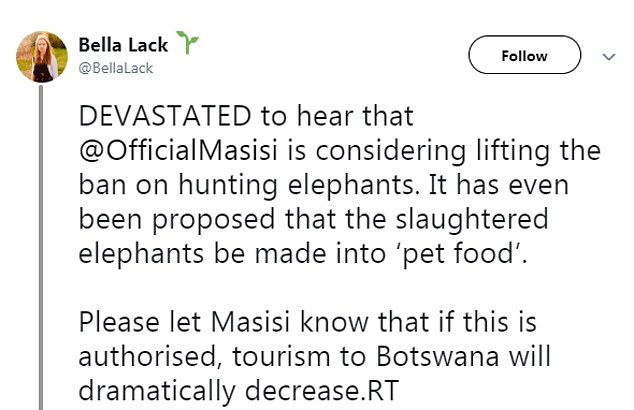
The conservationist, who spoke on condition of anonymity, told the paper: ‘Botswana does have too many elephants, and there is huge elephant human conflict.
‘But this is not economically viable and it doesn’t take into account the reputational damage to the country. Better exploitation of sustainable tourism is a far better model.’
Online campaign group Elephants DC, which advances anti-poaching and anti-smuggling policies and has 35,000 Facebook followers, said: Botswana in the news for all the wrong reasons.
America should help NOW defend future impending poaching slaughters of the elephants. This nation is largest last haven of African elephants, many now whom are refugees after fleeing conflict elsewhere, in the world.’
One Twitter user said: ‘DEVASTATED to hear that @OfficialMasisi is considering lifting the ban on hunting elephants. It has even been proposed that the slaughtered elephants be made into ‘pet food’.
‘Please let Masisi know that if this is authorised, tourism to Botswana will dramatically decrease.’
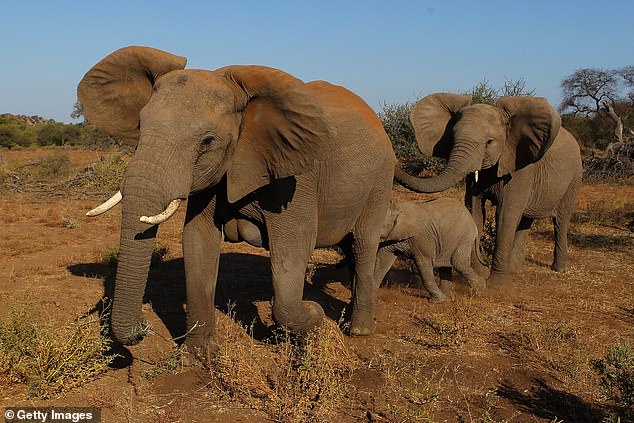
Regarding the idea that the African democracy could be set to cull the animals, one Twitter user said: ‘Conservationists around the world must join forces to ensure that this ludicrous idea never happens.
Elephants are the most majestic of creatures. Thousands have been slaughtered for their ivory, now this shocking development. Elephants will become extinct.’
Another said: ‘Guys gonna pls stop the savagery against the elephants… everybody likes elephants - they connect us into the history of life itself. The Queen and Prince Philip like to feed them bananas too. Cheers.’
But one social media user took a different approach, saying: ‘Do you know the struggle of someone in Shakawe who’s has to face this animals every other day? Have you ever had you crops completely erased by elephants. What really is your mandate?’
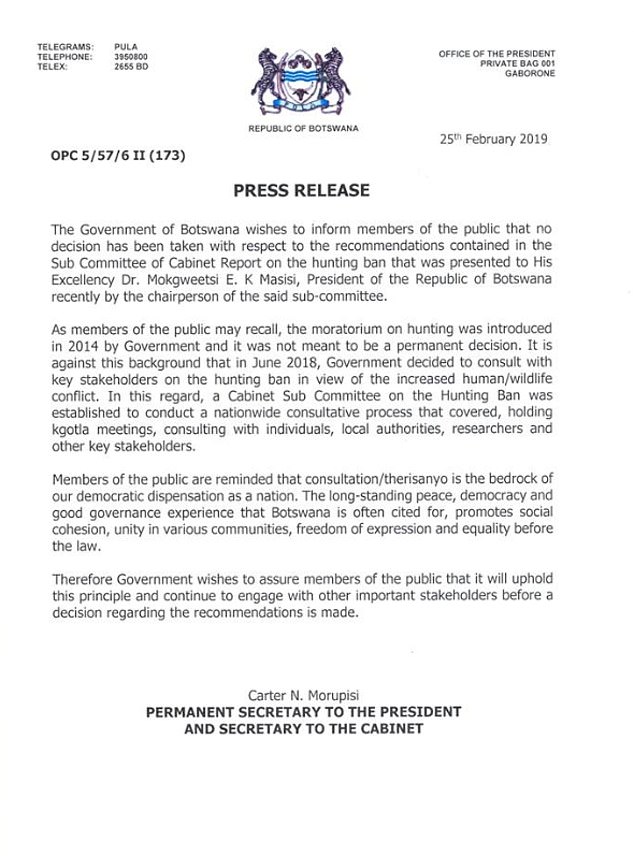
Last year, Sir Ranulph Fiennes, Bill Oddie, Peter Egan, and a cross-party group of MPs rallied against proposals to lift the ban, claiming that allowing hunting could force the species to the point of extinction.
When the 2014 ban was imposed, the government had said it was moved to act after indications of ‘several species in the country’ showing declines.
The ban permitted hunting in registered and private game ranches. Some have argued that the rules may have been a detriment to the animals and people alike.
NPR reports that a spokesperson for conservationist non-profit organisation Elephants Without Borders said: ‘Some people are worried that elephants have recovered in greater numbers than the environment can sustain, and there is significant concern over increasing human-elephant conflict.
Subscribe for Green World Warriors Newsletter
‘During the past 20 years the elephant range in Botswana has expanded by 53%, causing increasing concern about the impact of elephants on biodiversity, the viability of other species and the livelihoods and safety of people living within the elephant range.’
Botswana’s Government published a statement on Twitter outlining how it had not taken a decision regarding the committee’s recommendations.
It read: ‘The Government of Botswana wishes to inform members of the public that no decision has been taken with respect to the recommendations contained in the Sub Committee of Cabinet Report on the hunting ban that was presented to His Excellency Dr. Mokgweetsi E. K Masisi, President of the Republic of Botswana recently by the chairperson of the said sub-committee.
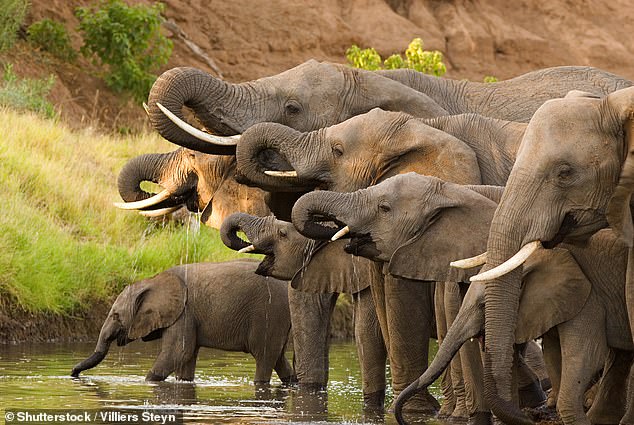
‘As members of the public may recall, the moratorium on hunting was introduced in 2014 by Government and it was not meant to be a permanent decision.
It is against this background that in June 2018, Government decided to consult with key stakeholders on the hunting ban in view of the increased human/wildlife conflict.
‘In this regard, a Cabinet Sub Committee on the Hunting Ban was established to conduct a nationwide consultative process that covered, holding kgotla meetings, consulting with individuals, local authorities, researchers and other key stakeholders.
‘Members of the public are reminded that consultation/therisanyo is the bedrock of out democratic dispensation as a nation.
The long-standing peace, democracy and good governance experience that Botswana is often cited for, promotes social cohesion, unity in various communities, freedom of expression and equality before the law.
‘Therefore Government wishes to assure members of the public that it will uphold this principle and continue to engage with other important stakeholders before a decision regarding the recommendations is made.’
The statement was attributed to Carter N. Morupisi, Permanent Secretary to the President and Secretary to the Cabinet.
Botswana, which is roughly the size of France, has a population of around 2.3 million people and contains vast tracts of remote wilderness that make it a magnet for foreign tourists who want to view wildlife.
International tourism could generate £160m for Botswana this year, rising to £280m by 2021 - more than trophy hunters spend across the whole of southern Africa.
Source: Dailymail
